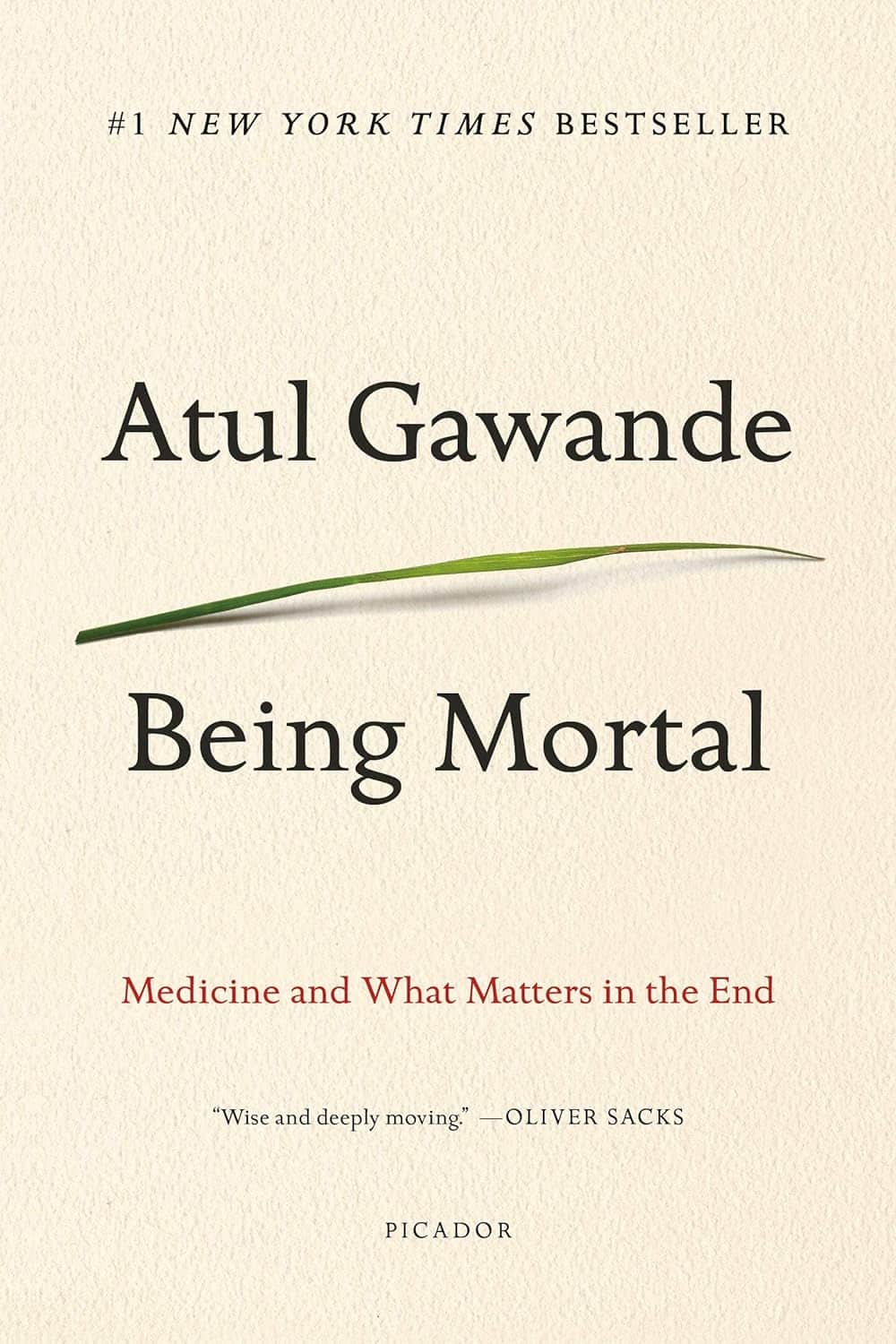The best doctors are constantly learning, constantly improving, constantly finding the errors in their ways.
Atul Gawande, in Being Mortal, describes his personal journey through dealing with death and suffering. This is a heavy topic, but Dr. Gawande argues, it must be talked about.
Doctors, healthcare providers, have an obligation to provide the best care to patients they possibly can. Providing the best care, at times, means providing no care at all.
Here is what I learned from Dr. Gawande.
What I Learned
- Everyone dies, it’s important to develop a plan for when the ones you love become sick or injured.
- Old age and disease hamper independence, increasing the burden on the family, medicine, and societal programs.
- Multiple studies show hospice care extending survival in certain conditions.
- Questions you should ask someone before they die:
- What is your understanding of the situation and its potential outcomes?
- What are your fears and what are your hopes?
- What are your biggest fears and concerns?
- What goals are most important to you?
- What trade-offs are you willing to make, and what ones are you not?
The story in this book is compelling. It’s a tough read, especially if ones close to you are sick. However, more importantly, it’s an important read.
These tough decisions must be made for the benefit of your loved ones.
-Zach
Quotes I Like
- In the United States, 25 percent of all Medicare spending is for the 5 percent of patients who are in their final year of life, and most of that money goes for care in their last couple of months that is of little apparent benefit.
- In 2008, the national Coping with Cancer project published a study showing that terminally ill cancer patients who were put on a mechanical ventilator, given electrical defibrillation or chest compressions, or admitted near death, to intensive care had a substantially worse quality of life in their last week than those who received no such interventions. And, six months after their death, their caregivers were three times as likely to suffer major depression. Spending one’s final days in an ICU because of terminal illness is for most people a kind of failure.
- According to palliative specialists, you shouldn’t say, “ I’m sorry things turned out this way, ” for example. It can sound like you’re distancing yourself. You should say, “ I wish things were different. ” You don’t ask, “ What do you want when you are dying? ” You ask, “ If time becomes short, what is most important to you?”
- Sometimes we can offer a cure, sometimes only a salve, sometimes not even that. But whatever we can offer, our interventions, and the risks and sacrifices they entail, are justified only if they serve the larger aims of a person’s life. When we forget that, the suffering we inflict can be barbaric. When we remember it the good we do can be breathtaking.
- All the same, I fear what happens when we expand the terrain of medical practice to include actively assisting people with speeding their death. I am less worried about the abuse of these powers than I am about dependence on them. Proponents have crafted the authority to be tightly circumscribed to avoid error and misuse. In places that allow physicians to write lethal prescriptions — countries like the Netherlands, Belgium, and Switzerland and states like Oregon, Washington, and Vermont — they can do so only for terminally ill adults who face unbearable suffering, who make repeated requests on separate occasions, who are certified not to be acting out of depression or other mental illness, and who have a second physician confirming they meet the criteria. Nonetheless, the larger culture invariably determines how much authority is employed. In the Netherlands, for instance, the system has existed for decades, faced no serious opposition, and significantly grown in use. But the fact that, by 2012, one in thirty – five Dutch people sought assisted suicide at their death is not a measure of success. It is a measure of failure. Our ultimate goal, after all, is not a good death but a good life to the very end. The Dutch have been slower than others to develop palliative care programs that might provide for it. One reason, perhaps, is that their system of assisted death may have reinforced beliefs that reducing suffering and improving lives through other means is not feasible when one becomes debilitated or seriously ill.





